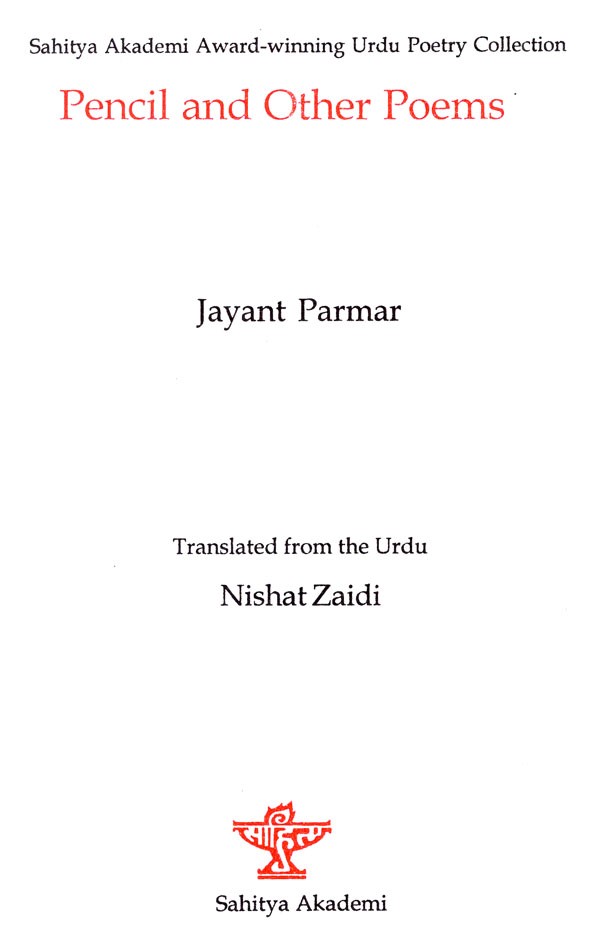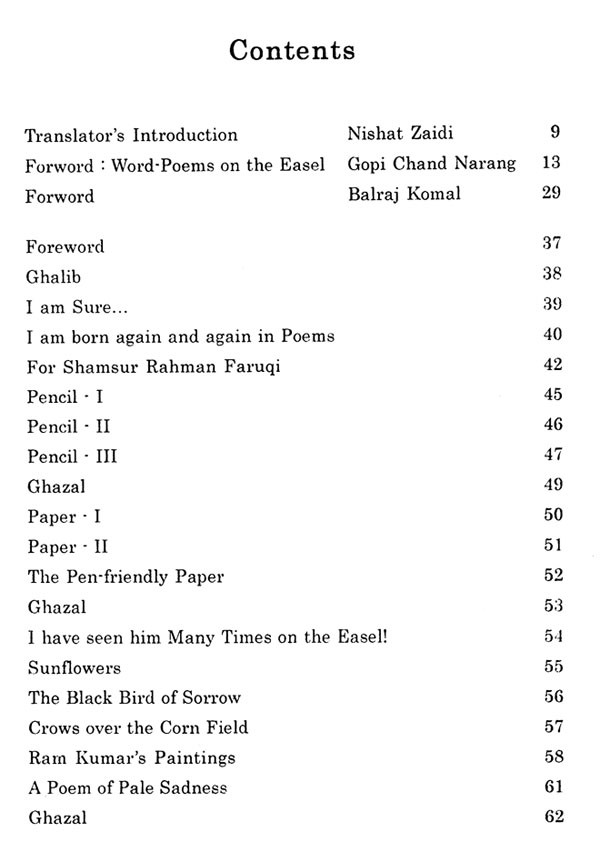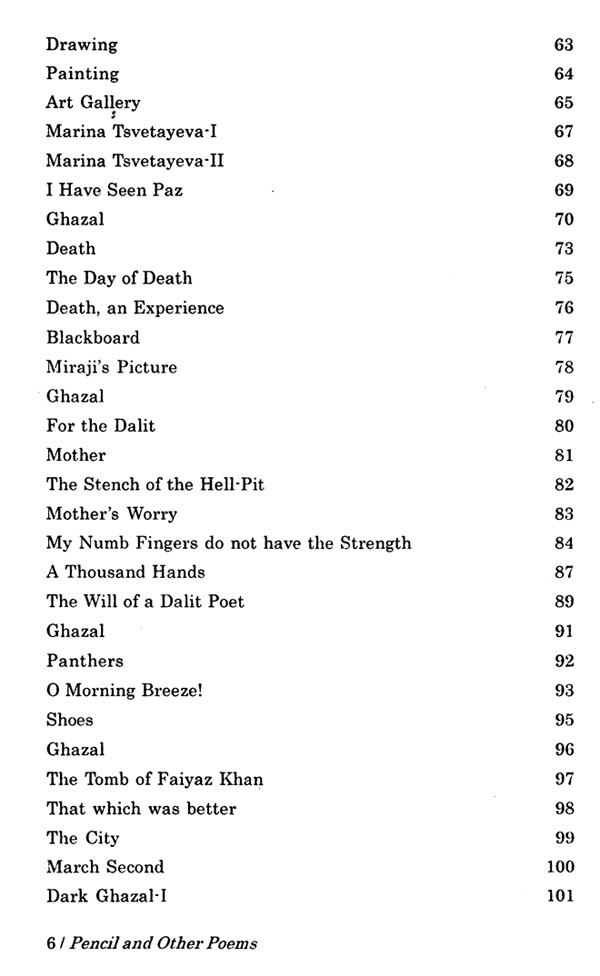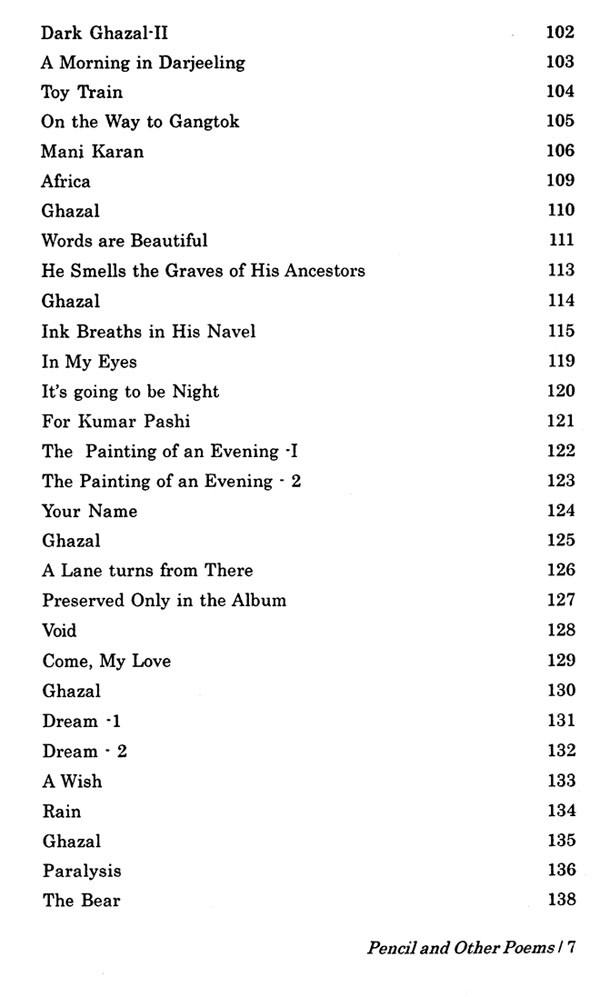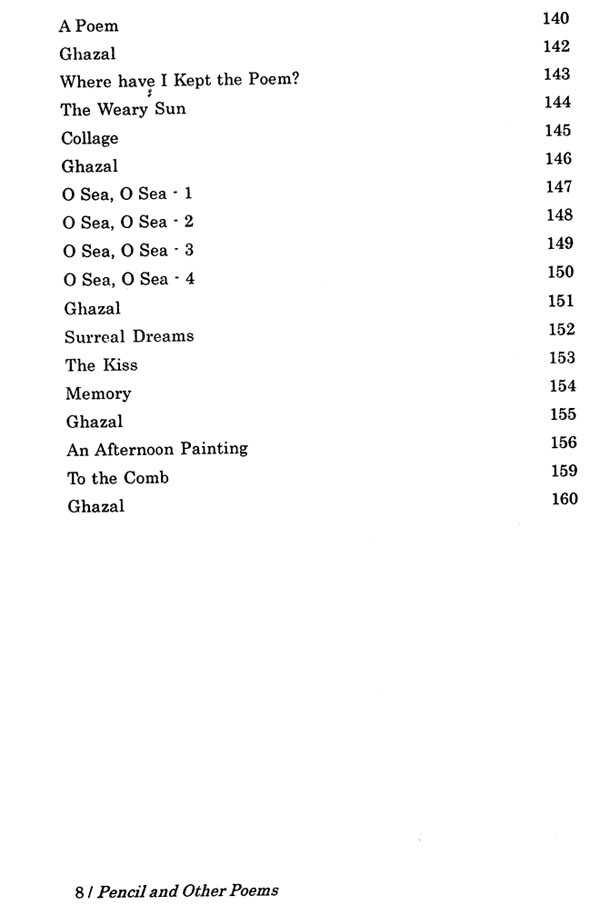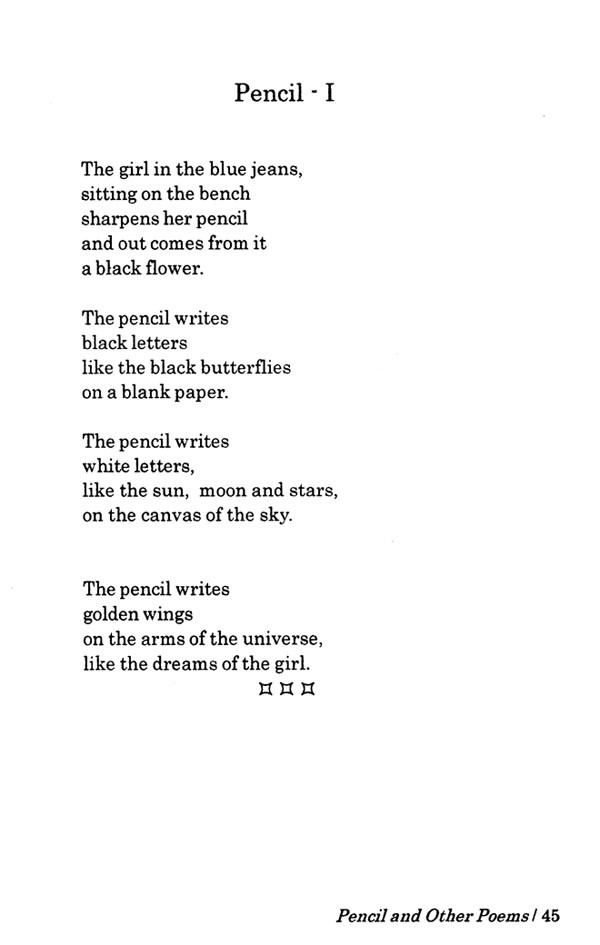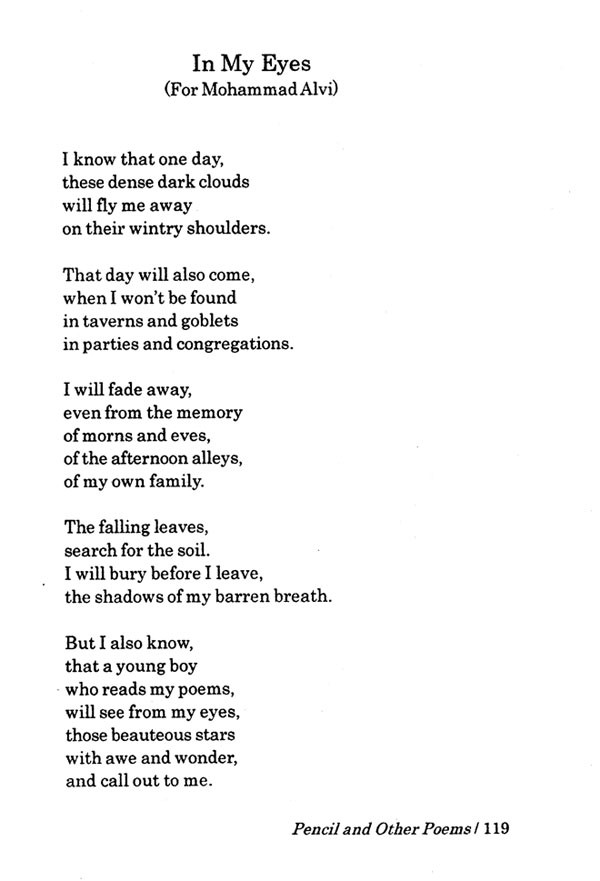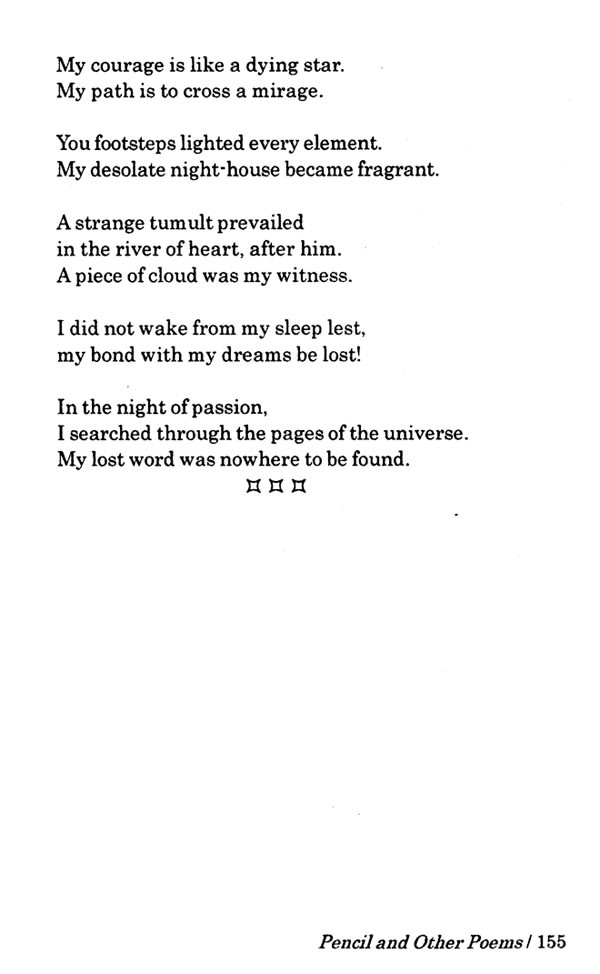
Pencil and Other Poems- Sahitya Akademi Award-Winning Urdu Poetry Collection
Book Specification
| Item Code: | AZH311 |
| Author: | Jayant Parmar |
| Publisher: | SAHITYA AKADEMI, DELHI |
| Language: | ENGLISH |
| Edition: | 2016 |
| ISBN: | 9788126043309 |
| Pages: | 160 |
| Cover: | PAPERBACK |
| Other Details | 8.50x5.50 inches |
| Weight | 220 gm |
Book Description
Pencil Aur Doosri Nazmein (2006), the second anthology by Jayant Parmar won the prestigious Sahitya Akademi Award in 2009. A collection of nazms and ghazals, the book is unique in its amalgamation of Dalit angst with the aesthetics of Urdu poetry.
Jayant Parmar (b.1954), a bilingual poet, has published extensively in Gujarati and Urdu. His Gujarati poems vocally express his Dalit concerns. But, Urdu, he claims, is his first love. He has written both nazms and ghazals in Urdu. He published his first anthology in Urdu in 1999 titled Aur. Jayant Parmar has been honoured with the Gujarat Urdu Akademi Award (2001), Kumar Pashi Award (2001) and the Sahitya Akademi Award (2009).
Nishat Zaidi is a critic, scholar and translator. She is the author of Anne Sextom. A Postmodern Feminist Reading and has translated and edited a number of books including A Voyage to Modernism: Sir Syed Ahmed Khan (with Mushirul Hasan). She is currently Professor, Department of English, Jamia Millia Islamia, New Delhi.
Poetry is a multifaceted art. Just as beauty attracts in a variety of ways, poetry also is a bag of secrets with its own charm. Although literary criticism unravels the mysteries of poetry-and the real appreciation is nothing but a reading that recreates the creative process and explores its meaning-but unravelling all the secrets, despite claims by critics, is beyond any kind of criticism. Critics who make such claims, perhaps, are not mindful of their own feet of clay. If, while reading or hearing, poetry captures the imagination, leaves an impression, recalls an experience or produces a wave of memory of the past or opens a window of hidden secrets, then it in a way uses aesthetic beauty, which is known as Aesthetic act or medium in literary criticism. Words by themselves are words but they become charged with wonder when imbued with the spark of innovative meaning and impact. It is not a mechanical process, the creative process is an integrated whole where the warp cannot be separated from the woof whereby the text is transformed into a mystical experience.
Good poetry is born out of tensions, believed W.B. Yeats. While the ideals that the poets nurture dictate their thematic choices, any art, ultimately, must rise above the propaganda and create beauty, which transcends limits of the manifest. Unfortunately, much of the critical writings on Jayant Parmar approach his poetry from rather narrow perspectives of him being a Dalit poet, an artist poet, a calligrapher and so on. In his case, it is more like picking low-hanging fruits and pigeonholing a bard whose verse in fact proves him to be a true poet. Jayant Parmar's poetry, as I have experienced it, achieves this by adhering to the aesthetic imperatives of poetry, notwithstanding his overt espousal of social causes. Even as 'Dalitism' continues to be a crucial concern in Jayant's poetry, unlike other Dalit writers Jayant refuses to surrender art and aesthetics to the dictates of 'praxis'. By his sheer commitment and sincerity to his craft, labour and immense talent Jayant Parmar is one of the best among the poets of his generation and indeed a highbrow poet of Urdu.
Born in a Dalit family, to an illiterate mother and a factory worker father who had never been to school, Jayant Parmar learnt to face the vagaries of life at an early age. He was all of fourteen when he started to earn livelihood by drawing portraits and working for a frame seller. Soon miniature painting became his profession. At thirty, Jayant Parmar, who lived in a Muslim majority locality, decided to learn Urdu language and literature. Soon enough, he succeeded in mastering the art and craft of Urdu poetry. He has also laid his hand at Urdu calligraphy.
**Contents and Sample Pages**
